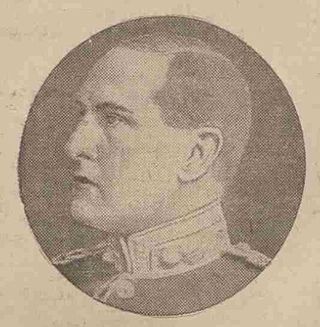Related Research Articles
John Bampton was an English churchman who founded the Bampton Lectures at the University of Oxford.
Regius Professorship of History is one of the senior chairs in history at the University of Cambridge. It was founded in 1724 by George I as the Regius Professorship of Modern History.

Sir Edmund Taylor Whittaker was a British mathematician, physicist, and historian of science. Whittaker was a leading mathematical scholar of the early 20th-century who contributed widely to applied mathematics and was renowned for his research in mathematical physics and numerical analysis, including the theory of special functions, along with his contributions to astronomy, celestial mechanics, the history of physics, and digital signal processing.

Sir James Ramsay Montagu Butler, was a British politician and academic. He was a member of parliament for Cambridge University from 1922 to 1923. He was Regius Professor of Modern History at the University of Cambridge from 1947 to 1954, and vice-master of Trinity College, Cambridge, from 1954 to 1960. He also saw military service during both the First and Second World Wars.
Sir William Woodthorpe Tarn was a British classical scholar and a writer. He wrote extensively on the Hellenistic world, particularly on Alexander the Great's empire and its successor states.
The Tarner lectures are a series of public lectures in the philosophy of science given at Trinity College, Cambridge since 1916. Named after Mr Edward Tarner, the lecture addresses 'the Philosophy of the Sciences and the Relations or Want of Relations between the different Departments of Knowledge.' The inaugural lecture was given by Alfred North Whitehead in the autumn of 1919 and are published as his "The concept of nature."
The Ford Lectures, technically the James Ford Lectures in British History, are an annual series of public lectures held at the University of Oxford on the subject of English or British history. They are usually devoted to a particular historical theme and usually span six lectures over Hilary term. They are often subsequently published as a book.
Anthony Noble Frankland CB, CBE, DFC was a British historian who served as Director General of the Imperial War Museum.
Sir Elihu Lauterpacht was a British academic and lawyer, who specialized in international law. The son of Sir Hersch Lauterpacht, he was founder of the Lauterpacht Centre for International Law at the Law Faculty in Cambridge University.

Sir Lees Knowles, 1st Baronet was a British barrister, military historian and Conservative politician.

The School of Medicine at Trinity College in Dublin, Republic of Ireland, is the oldest medical school in Ireland. Founded in the early eighteenth century, it was originally situated at the site of the current Berkeley Library. As well as providing an undergraduate degree in medicine, the school provides undergraduate courses in physiotherapy, occupational therapy, radiation therapy, human nutrition & dietetics and human health & disease, over 20 taught postgraduate courses, and research degrees.

The University of Wales Trinity Saint David is a multi-campus university with three main campuses in South West Wales, in Carmarthen, Lampeter and Swansea, a fourth campus in London, England, and learning centres in Cardiff, Wales, and Birmingham, England.

Keith John Jeffery MRIA was a Northern Irish historian specialising in modern British, British Imperial, and Irish history.
Major-General Sir Wilkinson Dent Bird, was an officer of the British Army during the late-19th century and the First World War.

Charles Robert Mowbray Fraser Cruttwell was a British historian and academic who served as dean and later principal of Hertford College, Oxford. His field of expertise was modern European history, his most notable work being A History of the Great War, 1914–18. He is mainly remembered, however, for the vendetta pursued against him by the novelist Evelyn Waugh, in which Waugh showed his distaste for his former tutor by repeatedly using the name "Cruttwell" in his early novels and stories to depict a sequence of unsavoury or ridiculous characters. The prolonged minor humiliation thus inflicted may have contributed to Cruttwell's eventual mental breakdown.
Sir Eric Keightley Rideal, was a British physical chemist. He worked on a wide range of subjects, including electrochemistry, chemical kinetics, catalysis, electrophoresis, colloids and surface chemistry. He is best known for the Eley–Rideal mechanism, which he proposed in 1938 with Daniel D. Eley. He is also known for the textbook that he authored, An Introduction to Surface Chemistry (1926), and was awarded honours for the research he carried out during both World Wars and for his services to chemistry.
William Rutty M.D. (1687–1730) was an English physician.
The Birkbeck Lectures in Ecclesiastical History have been held at Trinity College, Cambridge, since 1886.
References
- ↑ David Parrott. History Faculty Alumni Newsletter No. 3 (May 2005), University of Oxford, Faculty of History. Retrieved 13 July 2008
- ↑ "Obituary: Sir Lees Knowles. A Life of Public Service". The Times . 8 October 1928. p. 18.
- ↑ Home > About Trinity > Public Lectures > Lees Knowles Lectures > Past Lees Knowles Lecturers, Trinity College, Cambridge. Retrieved 13 July 2008
